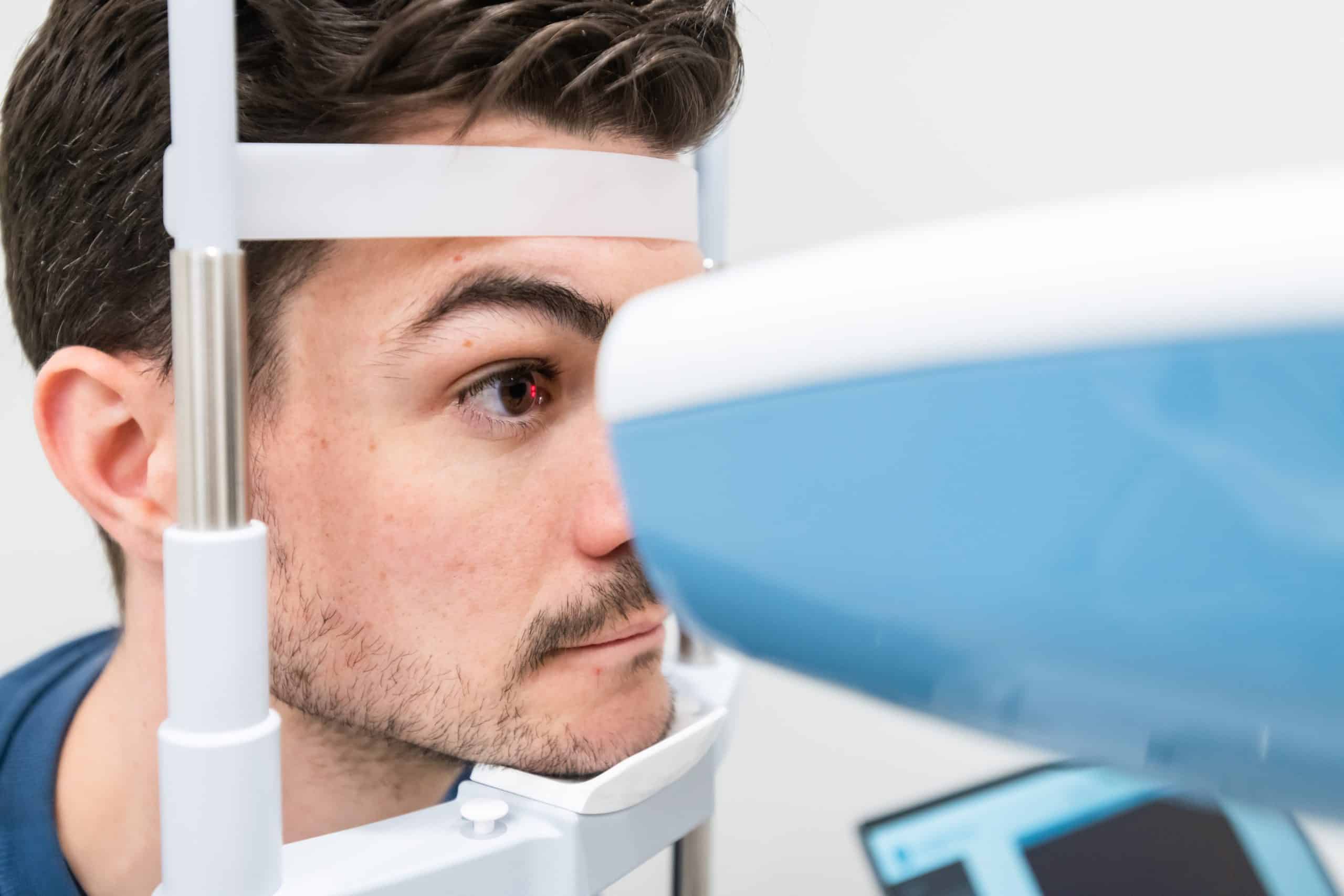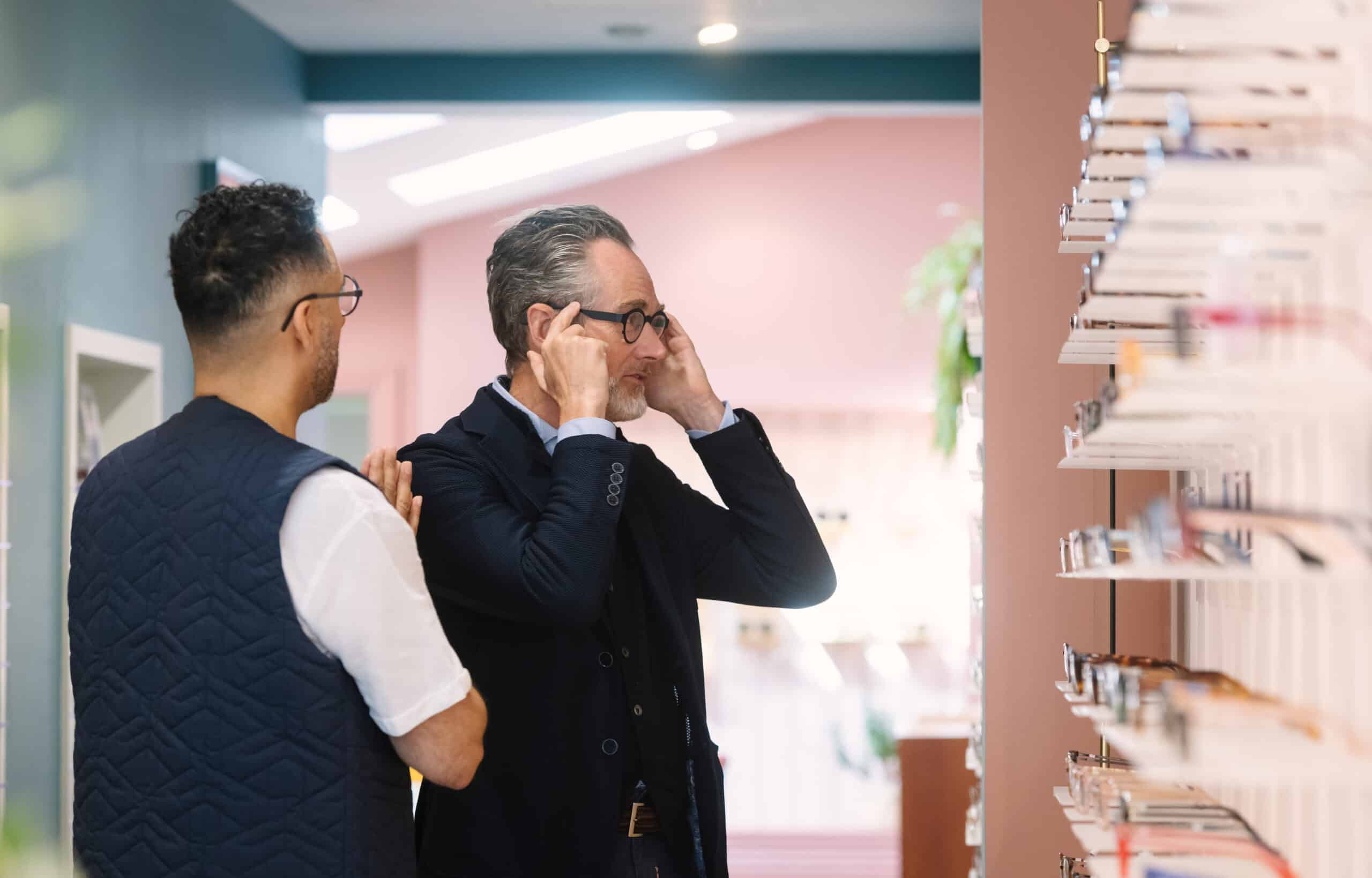Our eyes are extremely hard-working organs that are always on the go. Every waking hour of our lives, between every blink, our eyes deal with a lot of strain – and it can be very easy to take them for granted.
How you spend your time will have an effect on your eyes, whether you spend most of your time watching your new favourite series over the weekend, spend hours upon hours in direct sunlight, start a new painting, or work in front of a screen all day, we want to enjoy and see everything in our lives, which is why you should know how often eye are exams needed in order to keep things working as they should.
Regular check-ups to monitor the health of your eyes is crucial. By attending scheduled eye test appointments, we can keep an eye on the condition of your eyes, and even detect your risk of developing glaucoma, macular holes, and diabetic retinopathy years before conventional eye tests.
So, with this in mind, how often should you get your eyes tested?
How Often Should You Have an Eye Test?
Adults should have their eyes tested every two years if no problems were detected during their previous eye test and they haven’t developed any issues with their eyes. However, if you’ve noticed a change in your vision, you’re getting more headaches than usual, you’re concerned about your eye health, or you’ve noticed a problem with your eyesight, we highly recommend booking an eye test as soon as possible.
*If, during your visit, your optometrist recommends more frequent visits; always follow this advice.
As well as being able to detect your visual acuity, we use hospital-grade equipment to detect signs of minor and more serious eye conditions years before conventional eye tests can, years before you’re even aware of them.

Some examples of what we can detect during your routine eye test include:
- Glaucoma
- Age-related macular degeneration
- Diabetic retinopathy
- High blood pressure
- Cardiovascular disease
- Arthritis
- Tumours
- Other eye diseases
Many of these issues can be treated if they are found in time with regular eye tests.
Age Affects How Often Eye Exams are Needed
Just like the rest of our bodies, our eyes degenerate over time as we age. Even if you already have glasses or contact lenses, you should monitor changes to your sight and arrange a visit to our opticians at least every two years unless you have any eye health concerns.
Although a change in your vision isn’t necessarily a direct cause for concern, if you notice that your eyes are significantly blurrier than before, do be sure to visit the opticians as soon as possible.
How Often Are Eye Exams Recommended for Driving?
According to the DVLA guidelines, if you drive, you must be able to read a number plate 20 metres away and be able to read the 6/12 line on a Snellen chart. If you’re currently learning to drive, in every practical driving test, your examiner will start by asking you to read a number plate in order to verify your vision. Failing this, you’ll fail the entire exam as it is a cause for dangerous driving. If you’re driving, or learning to drive, a lorry or a bus, the standards will be higher.
Do I Need An Eye Test If I’ve Been For a Contact Lens Check-Up?
The short answer is yes. The purpose of contact lens check-ups is to check the condition of the front surface of your eye in contact with the lens whilst checking the quality of your vision with your contact lenses.
A contact lens check-up does not measure the health of your inner and outer eyes, so it is crucial to go for an eye test as well as the back of your eyes can be affected by a wide range of eye conditions and eye diseases. Although some are uncommon, the technology we use can detect eye problems years before they occur on conventional tests – and significantly earlier than simply waiting for symptoms to show up.
How Often Do You Need an Eye Test if you Work in an Office?
If you spend your working hours in front of a screen, it’s important that you take regular breaks to reduce the strain on your eyes and be mindful of your screen display settings to ensure they’re safe for your eyes.
Today, many people work in office environments and if you notice your eyes feeling tired, strained or you suffer more frequently with headaches, you may require a new prescription to counter these symptoms.
The good news is, there are ways to prevent and protect your eye health at work, and they can be added to your daily routine:
Frequent pauses, making sure to look away from your screen:
In order to give your eyes rest from staring at a screen, try following the 20-20-20 rule. Although it is a simple name to remember, the hard part is remembering to actually do it.
For every 20 minutes on a screen, look at something 20 feet away for 20 seconds. You could set a reminder on your phone, computer, or smartwatch to give you a nudge. Your eyes will certainly thank you.Follow the advice:
The experts know what they’re talking about – so wear glasses or contact lenses prescribed for looking at screens only when advised to do so by your optometrist.
Blink regularly:
Staring at a screen, you may notice that you blink less often. Rather than just your normal half-second blinks, take some slow deliberate blinks to provide moisture to your eyes and reduce the dry sensation.Find a good light:
Make sure that you’re working in a well-lit environment without light reflecting off of your screen. You don’t want glare on your screen as this can lead to straining of the eyes.
All of this advice still applies when you finish work for the day and head home. Although your day staring at a screen at the office might be over, you’ll still go home and watch the big screen whilst using a small screen to browse social media, so be mindful of your exposure to screens and ensure your prescription is up to date!
Book Your Private Eye Examination with Taylor-West & Co
Ensuring your eyes are in the best condition they can be is our top priority here at Taylor-West and Co, so choosing us as your optician of choice will ensure that you receive the highest quality of eye care on the market. All of your eye examinations will be conducted by a fully qualified optometrist with state-of-the-art hospital-grade equipment.





